Here’s another voice to add to that ever more urgent call for action on behalf of planet earth — Fred Burton, and his novel, Bountiful Calling.
Bountiful Calling: A Novel
Praise for Bountiful Calling:
“Perhaps the most important benefit of good fiction is that it allows the reader to experience the drama and emotions of the characters in the story in ways that non-fiction can’t do. Thus, good fiction gives us insights to human experiences that are often missed in our day-to-day lives. Fred Burton’s powerful novel Bountiful Calling about the lives of people caught up in the explosive forces unleashed by the natural gas boom in Pennsylvania is not only an excellent and well-plotted story, but also describes very plausible emotional responses of those caught up in the highly contentious civic warfare over gas fracking that erupted less than two decades ago. Because the characters in this book are believable, understanding their hopes and fears deepens the reader’s empathy for those who continue to be engaged in disputes about the potential impacts of natural gas development on the environment from activities backed by some who benefit economically. Because the intensity of disputes about the acceptability of fossil fuel combustion is likely to deepen in the decades ahead, an understanding of the emotional life of some affected by fossil fuel controversies provided by this novel will enhance the reader’s insights about the human dimensions of important civic challenges still unfolding.”
—Donald A. Brown, Scholar in Residence and Professor, Sustainability Ethics and Law, Widener University Commonwealth Law School
Synopsis for Bountiful Calling
When an oil and gas company’s encroachment on Nicole’s family property steals away the bucolic life the family had known for years, Nicole begins a wild and provocative journey, aligning herself with a group that engages in acts of civil disobedience, attending fire circles where pagan rituals are performed, and participating in a CNN interview that goes off the rails. Before the crisis, Nicole and Joe, a staffer for a powerful Pennsylvania state senator were en route to falling in love. Now the two are each asking themselves the bigger questions like what is it they believe and what is worth fighting for?
The action takes place deep in the Marcellus Shale region where Joe’s boss is hell-bent on exploiting the fracking boom to improve the economy in his region. Watching Nicole’s family ripped from the inside out raises ethical questions Joe had never asked himself before. Suddenly, he is cognizant of questionable behavior by business and government power brokers that he had previously not noticed, and now he needs to make some tough choices. Does Joe jeopardize his career and betray the trust of those he works with or does he support the woman he loves? How far will Nicole go to save the life she loved? Read Bountiful Calling and find out.
All About Fred Burton
Fred Burton grew up in Queens, New York. He wrote fiction in his early 20s and returned to it again after his children reached their teen years. His first novel, The Old Songs, takes place in Queens during the 1950s and early 1960s. Although he grew up after the years covered in this book, he did experience the turbulent effects of this era and heard the stories brought forth from it. One reviewer said the book read like a “gritty Anne Tyler novel.”
His latest novel, Bountiful Calling, is set in central Pennsylvania and was drawn from a variety of influences. While living in Harrisburg, Pa. he was involved in the anti-fracking movement. This was an excellent vantage point from which to see the powerful business and government forces coalescing around the economic potential of fracking but also its effects on individual people and communities.
Burton avoids easy answers, whether in the emotional interactions in The Old Songs or the ideas swirling about in Bountiful Calling. He carefully constructs situations and characters and at a certain point lets them go on their way. He would rather place the reader within a richly textured, complex situation and let him or her decide what is important, what rings with the sound of truth.
Burton spent his career working in the computer information world, both for government and in the private sector. He’s now working on a new novel that builds upon the themes developed in Bountiful Calling. He lives in Baltimore, MD.
Q&A With Bountiful Calling Author Fred Burton
The book’s main conflict involves fracking. Have you or anyone you know been personally affected by it?
No.
What brought up the desire to write this book?
I lived in Harrisburg, Pennsylvania for many years. I attended a few anti-fracking demonstrations during which residents from the fracking regions spoke about the hardships they endured. These areas were under siege, the people collateral damage. I wanted to give voice to their struggles and this book is a response to that desire. Further, actual historical events intermix with the fiction since Pennsylvania is one of the epicenters of fracking that is transforming the economy and environment of the U.S.
In your opinion, is there anything of merit that comes from fracking? If so, is it worth the negative side effects? Would it be better if the government worked with property owners more in order to facilitate the making of more agreeable terms, or do you think that fracking should not be done at all?
The only argument in favor of fracking is if it is used as a bridge energy source to renewables. This is clearly not the case in this country, because there is no defined policy directed towards this outcome. Instead, we burn as much oil and gas as we can pump out of the ground. Even if you listen to only the moderate narrative coming from the scientific community, it’s clear that burning fossil fuels, as we do currently, represents an existential threat to all of us. We are compelled to keep the gas and oil in the ground if we hope to continue a semblance of life as we know it. But this means acting in ways that do not maximize our profit-making capability. And this is in direct conflict with enormously powerful forces present in every phase of our lives. This is the essential drama of our day and Bountiful Calling tries to fairly portray this dynamic.
What would be an ideal government-citizen relationship in regard to fracking?
Today’s governments need to learn from indigenous cultures. Fracking is an excellent example of an overarching societal problem. When we separate ourselves from the world, everything is turned into commodities from which profit can be derived. Governments need to balance short-term needs with the health and sustainability of the planet. Fracking needs to be seen within this framework, which means it needs to stop as soon as possible and governments need to turn their attention to supporting renewable energy technology and development. Most people understand this. Governments need to be responsive to this majority and not the elites, who benefit most from current laws and regulations.
The book goes into more detail on fracking’s negative effects on people than the effects it has on the environment and animals. Was this a conscious decision? Was there a reason why you chose to distance the story from a more man vs. nature conflict in favor of a man vs. man conflict?
This is an interesting question. A major emphasis in the first part of the book was to give the rich cultural traditions that bound the people to the land, which described the spirit of the place. These relationships were at risk because of the juggernaut that fracking had become. This was the lens through which I described the devastating effects of fracking on the natural world. Perhaps I chose this route because this is a human made problem that can only be fixed by modifying human behavior.
Of the two major characters, Joe and Nicole, which one do you relate to more? Did that have an effect on how the character was written?
I’m probably more aligned with Nicole’s point of view because I think we need to explore alternative lifestyles. We have become extremely isolated from each other and the world around us. Healing the wounds this has caused won’t be accomplished with incremental change. But I definitely feel there is a need for people like Joe, whose gift is to work within the system, guided by concern and fairness.I would like to think my alignment to one or the other character had nothing to do with how the characters were developed. In nearly every aspect, I try to distance myself from the book and instead act as a conduit for the development and action that must necessarily occur.
The book follows the point of view of a few different characters, but it focuses on Joe and Nicole the most. What caused you to have two central characters rather than only one?
I think it is extremely powerful to bring to life multiple characters simultaneously. This gives the reader a dynamic experience, as he or she considers who they stand with, and what resonates for them. It’s also consistent with other ideas I’ve expressed in my comments previously. We really aren’t disconnected from each other. Energy flows between us. Expressing that energy is one of the magical qualities that is particularly well-suited to a novel.Another advantage to working with multiple characters is it helped me avoid writing a polemic. This book takes on very complex issues, and multiple points of view deserve to be represented. Environmentalists will probably be the central audience, but there are some within those ranks who will feel I should be harsher with those having different opinions. Anyone with an interest in the societal costs and benefits of fracking should find in this book something that stimulates thought and emotion.
Was there anything you were trying to convey by making Joe work for the government since it was portrayed to a major extent as a co-antagonist of the story? What made you decide to have Joe work with Nicole from within rather than represent the opposing ideals?
This is an excellent question. Joe developed a moral core through the course of the book. In the beginning, he was satisfied with managing his day to day tasks, and performed them without much consideration for their meaning or consequence. Later in the book, I could point to factors that contribute to his behaving in ways not aligned with his best self-interest, but I can’t tell you exactly why he does what he does. In these instances, he experiences his own non-linear, non-rational decision-making process. Accepting this part of himself, then embracing it, allowed him to grow in ways that would not have been possible otherwise.
Was Gabe’s death always planned from the beginning? Was it always intended to be Nicole’s driving force, or was it something that you discovered needed to happen while writing?
It was not planned from the beginning. When I’m writing a novel, I look for the time when the structure is sufficiently formed that it begins placing its demands upon me. These moments, when it starts giving back more than I’m putting into it, are the most exhilarating. Once I accepted the fact that Gabe should die, it opened up the possibility for themes that would be carried through the rest of the book. An example is the transfer of mythic power from 1960s style activism to the type of behavior young people are exhibiting today.
What was the inspiration for the activist group 2 Degrees? Do you think that change can be brought about more effectively if there were more groups with that same level of activism? Or would it be more of a hindrance than a help for the cause?
Groups like 2 Degrees are more of a hindrance. If they ever were able to rise to power, their rule would be just as cruel and unjust as the power structure they are in conflict with. But that is irrelevant because they will never have enough guns or bombs to effect the outcome they desire. The only way for real change to occur is if enough people decide they are not going to participate in the lifestyle demanded of them by those in power. Local, resilient economies must emerge, like the one in its nascent form at the end of the book.There was no specific inspiration for 2 Degrees, although I did find myself thinking about the daughter in Philip Roth’s American Pastoral. Her pursuit of a pure, revolutionary spirit not only destroys her own life but the lives of her family as well.
Nicole ends up attending a festival that has a spiritual effect on her. Was this inspired by anything that you’ve experienced? What values, if any, does the festival hold that you agree with? How important do you think connecting to the spiritual is for a person?
The festival was inspired by an event attended by someone very close to me. I think the values expressed there, of community and encouraging experiences that extend beyond rational thought, are necessary and useful. But the festival also plays a part in a very important theme of this book. The idea that you cannot force fundamental change is posited in the first few chapters. Instead, we move forward as best we can in partial darkness towards some hard-to-recognize destination. And then, suddenly, outcomes that seemed out of reach are made manifest. And those of us open to what is newly available will be there to embrace them.I think many of us in this culture are working our way back into living with a heightened, spiritual sense. The first way for many is to enter into a more direct relationship with the world around us and to be open to the wonders that this relationship brings forth.
Is there anything about the final story that ended up being different from what you originally had in mind? Was there anything that was cut or added later in the writing process in order to make the book’s message stronger?
There weren’t a lot of significant changes after the first draft. I was surprised at how things fell into place once I got rolling. Actual historical events, my personal observations, and totally made-up characters and scenes all melded agreeably. This was something for which I am very grateful.
Now that you’ve finished this book, what’s next for you? Do you have anything else in mind for Nicole and Joe? Any possibilities for their stories to continue, or are you happy with leaving it here for the two of them?
For now, I will let Nicole and Joe go on their way. I’m confident their lives are on good paths. Currently, I’m working on another novel. It was inspired, in part, by Elon Musk’s work with Neuralink technology. It will pit a fully-formed cyborg who has been programmed for military purposes by a dystopian government against a cyborg who has had Neuralink sessions across the full-range of his thinking and emotional capabilities. But the non-government cyborg is forced to flee before he can fully synthesize all the information available to him. His search for a third way must be performed outside the laboratory.With my new book, I am challenging the notion that the new cultural paradigm I hinted at in Bountiful Calling does not support the idea of heroes and super-heroes. I’ll let you know what I decide when I finish the book.
What are you hoping readers will take away after reading the book?
Throughout the book, I debunk many of the cultural icons on the left and the right. This set the stage for Joe and Nicole to take very bold risks at the end of the book. These actions were tied to an increased appreciation of their own humanity and the world in which they lived. If this gives readers a little more courage to pursue activities that give them a deeper appreciation of their lives, that would be enormously satisfying. If the readers have already staked out a path they feel destined to follow, I hope this helps them stay true to that path and gives them a sense that there are others out there with them.
Bountiful Calling is available on Amazon: https://amzn.to/38TmHyR
pam lazos 7.13.20

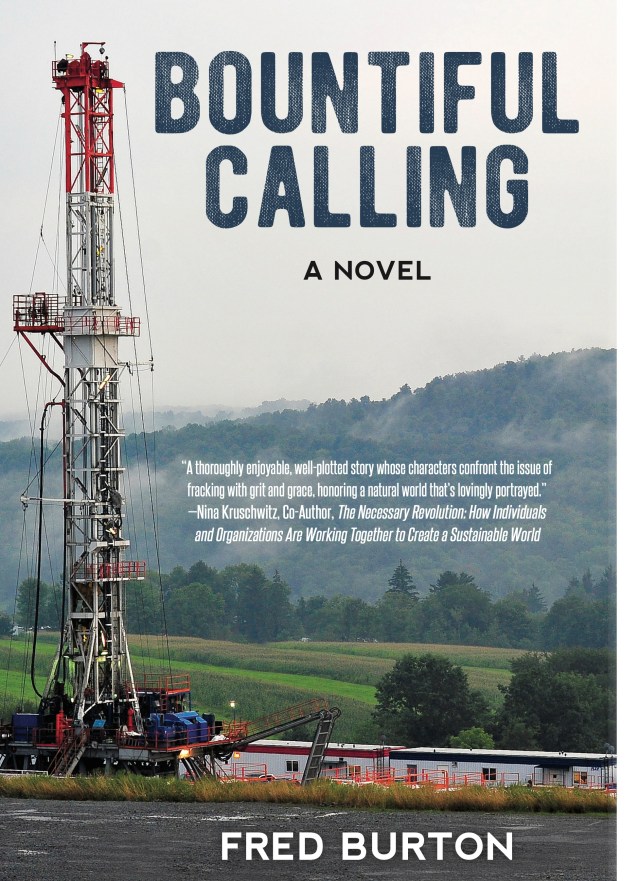

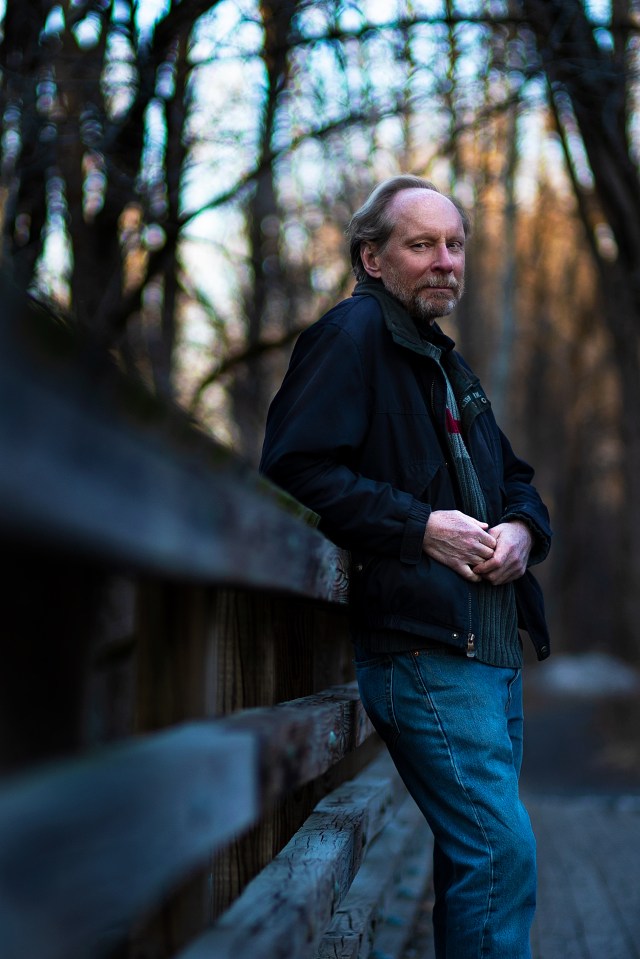
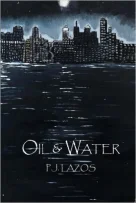




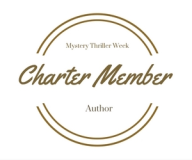

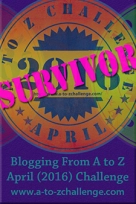


Pingback: - Fred F. Burton
Hi Fred!
LikeLiked by 1 person
Hi Pam,
Very nice to hear from you. I hope you are doing well and keeping your spirit up!
LikeLiked by 1 person
You, too, Fred! How are book sales going?
LikeLiked by 1 person
Sales are slow but I’m still hopeful it will find a readership. I just created a website that includes a link to your wonderful blog post of Bountiful Calling. It is FredFBurton.com if you care to look.
Thanks for asking!
LikeLiked by 1 person
I will stop by! Best of luck!!
LikeLike
Pingback: Bountiful Calling Q&A with GreenLifeBlueWater.Earth - Fred F. Burton
A wonderful interview, this. Regarding craft– I, too, have a hard time plotting stuff like character deaths. Yet there are times in writing when it simply happens, and we cannot stop it. We shouldn’t. The story’s brought us there, and we need to keep going.
LikeLike
That’s very true, Jean. When I was writing “Oil and Water” and three main characters got killed off within the first quarter of the book I started to wonder what was going on in my head! But sometimes the characters tell you where they’re going and not the other way around.
LikeLiked by 1 person
Yes, exactly! I’m not one to kill characters off just for the sake of tugging heart strings, but we can’t just let them get through all the hellfire unscathed, either.
LikeLiked by 1 person
😂🤪 so true.
LikeLiked by 1 person
Hi Jean. I’m really glad you found value in the interview. I also enjoyed and could relate to your description of the process you go through. It made me recall certain times when I’ve been directed to take the narrative in challenging, difficult directions. You know they will be hard to read, and to write as well. But you need to go where they lead for to do otherwise would be to introduce something false to your work, which would result in far worse consequences… So you press on.
LikeLiked by 2 people
Yes, exactly so. x
LikeLiked by 2 people
Great review and question and answers. Loved the way the book showed the humanity of some people on the “other side” of the issue too, who, in my opinion,were making the wrong choices but thought they were helping the people in the area. Some of them came to see it was the wrong path. Great character development.
LikeLiked by 1 person
I’m intrigued by that as well, Mary since we so often want to put people into categories of us and them when, in fact, we’re all in this together and the only way things will ever be made right is if we work together. 😊
LikeLike
I can feel their passion, in the blurb, in your comments.
LikeLiked by 1 person
🥰😍😘
LikeLike
Hi Jacqui,
You probably captured the most important thing I meant to accomplish in the book. There is plenty of intrigue and information about fracking but it’s really about placing the characters in position to feel strong emotions. And perhaps even more importantly, use those opportunities to write powerfully, match the situations with language that conveys the depth of those emotions.
Thanks for calling attention to this.
LikeLiked by 1 person
Pam, thanks for the review and other information. Definitely sounds like a must-read.
LikeLiked by 1 person
Thanks, Rosaliene!❤️
LikeLiked by 1 person
Hi Rosaliene,
I’m really glad you enjoyed reading about my book. I’d love to hear what you think of it if you do read it. There is a Facebook page called, Bountiful Calling, if you’d like to learn more. I also have an author page in the works.
Thanks again!
LikeLiked by 1 person
Great review and interview, Pam. This sounds like a great book! I’m dealing with more health problems but when time permits I’d like to send you an email about our experience with fracking, which is briefly mentioned in my Catwoods book but there was much more to it. Fracking actually started, I’m told, in Tuscaloosa County, originally as a way to de-gas long wall coal mines.
LikeLiked by 1 person
Could fracking be responsible for the health issues, Leah?!
LikeLiked by 1 person
Not in my particular case, the health issues for this rare disease were starting right before that time. But there are no doubt many unhealthy effects from fracking in general.
LikeLiked by 1 person
Well I hope that there is something that medical science can do for your condition, Leah. My husband has MS so I see close up what it’s like to live with an ongoing issue – so very hard and most discouraging. Hoping the best for you.💕
LikeLiked by 1 person
I’m very happy you enjoyed reading about Bountiful Calling.
More than that, I hope you are able to get to the bottom of your health issues.
LikeLiked by 2 people
Thank you Fred, I appreciate your well wishes.
LikeLiked by 2 people
And I hope you have great success with your book!
LikeLiked by 2 people
Lol.. I was in imagery flow!!! And we do indeed need more voices like this, calm, reasoned, knowledgeable.
LikeLiked by 1 person
True that, sister. Flow on!🤩
LikeLiked by 1 person
Flow on, indeed. Exactly the type of response I hoped for! I am something of a newbie with social media but I can see the appeal. I should have an author page up in a little that I’m getting excited about. One concern is there is another author named Fred Burton, whose point of view couldn’t be more different than mine… Something to work out.
Thanks so much again!
LikeLiked by 1 person
Yeah, you better get that polar opposite twin thing nailed down pronto, Fred!😂🤣
LikeLiked by 1 person
The pandemic has taken a lot of focus away From other problems, such as climate change and resource depletion. But those problems haven’t gone away. By the way, is there fracking anywhere near your home?
LikeLiked by 1 person
Thank goodness, no, Neil, but we can boast along the top 15 worst air quality areas in the country which sounds strange for an originally agrarian-based part of the world. There are still a lot of Amish (and other) farms here, but some industry (like Armstrong and Kellogg’s) and the fact that we sit in a valley keeps the air stuck in place. 🤨
LikeLiked by 1 person
Another wonderful interview, sistah. An absolute author to be mined and a rich truck of information brought to the fore. SOunds like some book.
LikeLiked by 1 person
And aren’t you clever — “an author to be mined” — while talking about fracking. 🙌👏😂🤣😂
We need more of voices like Fred’s to demonstrate how bad we are screwing up, environmentally speaking. 🙏
LikeLiked by 1 person
Thanks so much for these kind words. Bountiful Calling took years to write but was a labor of love. It is very gratifying to receive feedback like this.
LikeLiked by 1 person